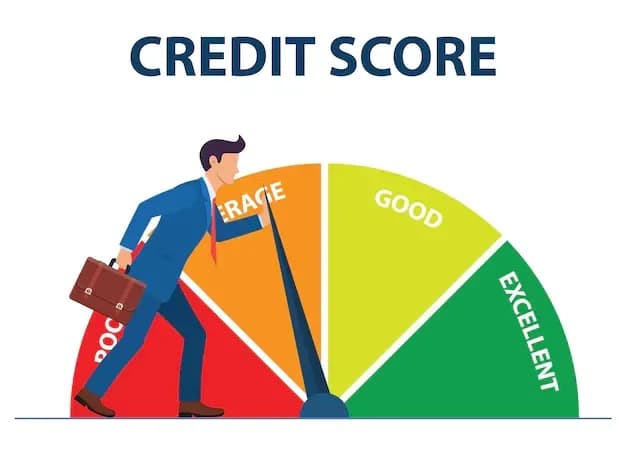
Don't Allow a Flatmate to Ruin Your Credit
Having a flatmate can help you lower housing costs, which is helpful especially in cities with high rent. However, your flatmate’s financial habits could end up affecting yours, particularly if the flatmate doesn’t make timely payments on shared bills.
You can make shared living easier and keep your flatmate from ruining your credit by setting the rules for space- and bill-sharing from the beginning. Decide who’s going to be on the lease (the landlord may require both people), whose name the utilities will be in, and how bills will be paid each month.
Lease Sharing
Many landlords require all adult occupants to be on a lease. In that case, everyone on the lease is responsible for the rent each month. When the rent is late, the landlord will pursue everyone on the lease for the unpaid amount. If your flatmate fails to pay their part of the rent, the two of you risk being evicted, even if you’ve been paying your portion on time each month.
Although an eviction will not wind up on your credit report, an unpaid balance could show on your report and make it harder for you to rent in the future. It can even hurt your ability to get a job, promotion, auto loan, mortgage, or credit card.
Some landlords create separate leasing agreements, in which case only the flatmate who defaults on their share of the rent is affected by late payments. Make sure you know how to tell that your lease is set up.
When Your Flatmate Isn't Paying
If your flatmate isn’t paying their share of the rent, try discussing it first. Let them know how much harder it is for you when their portion of the rent is late. Talk about the eviction risk you both face if the flatmate doesn’t pay up. If that’s not effective, discuss your options with your landlord. You may be able to move to another unit without a flatmate, depending on whether you can afford it.
You have other options, but they're not as attractive. You can pay the full rent on your own until the lease runs out. You could also opt to pay a fee to terminate your lease early. That isn't ideal, but it's better than being evicted.
Your lease and your state’s landlord-tenant laws will spell out the rights you have as a tenant and as a flatmate. For example, you may have the right to evict your flatmate for nonpayment, depending on how the lease was signed (if you're the primary signer, for instance, and the flatmate isn't on the lease or is a sublessee). The law may also allow you to sue your flatmate for the rent you paid on their behalf.
Using iROOMit, you can both sign a flatmate agreement before hand to make sure you are both on the same page.
Sharing Utilities
Flatmates also share utilities. Sometimes utilities are paid directly to the landlord, but often the utilities will be in your or your flatmate’s name. You are ultimately responsible for the bills in your name, no matter what oral agreements you’ve made with your flatmate. If your flatmate isn’t sending their portion of the utilities, it’s important that you first pay the bills for which you’re responsible and try to collect from your flatmate later. That may mean taking your flatmate to small claims court.
Are Utilities in Your Name?
Show your flatmate a copy of the bill when it comes, and then ask them to give you their share in advance of the due date. Pay the bill even if your flatmate doesn’t give you their part, and keep a record of what your flatmate owes you.
When it’s time to move out, make sure you disconnect services or have your flatmate switch the utilities to their own name. Too often, people leave the utilities on at a place where they no longer live. Then, when the flatmate doesn’t pay the bill, the original tenant doesn’t figure it out until the bill has gone to collections. Although regular utility payments aren’t listed on your credit report, unpaid utility accounts may be sent to collections and placed on your credit report and will typically remain for seven years, even after you’ve paid.
Who's Responsible for Utilities?
If your flatmate is responsible for the utilities, ask them to show you a copy of the bill each month in advance of the due date. You need to be sure the bills are being paid and you know your flatmate is being honest about your portion of the bill. Your flatmate’s failure to pay utilities in their name won’t affect your credit unless you’re also listed on the account. However, your flatmate’s failure to pay can leave you in the dark or without water.
A flatmate agreement is one way to keep everything in order. You can both sign off on your commitments, including everything from who is paying rent and utilities and when to what happens if someone moves out early.

Conclusion
In a nutshell, when you’re living with a flatmate, you have to make sure that all of the bills in your name are paid, even if you have to pay them yourself. Any unpaid bill can eventually affect your credit score. Considering that it takes seven years for most negative information to fall off your credit report, it’s better to avoid delinquent bills altogether.
Frequently Asked Questions (FAQs)
How does a credit report work when you're living with a flatmate?
Most landlords don't report your rent payments to the credit bureaus, so reporting usually won't be any different whether you have a flatmate or not. If you're not sure, ask your landlord whether they report your payments—and if so, how they report them.
How can I run a credit report on a potential flatmate?
You can run your own credit report so it's ready in your iROOMit Account Dashboard. You should ask any potential flatmates to do the same.
Under the Fair Credit Reporting Act, you generally can't check someone else's credit without their permission.
The simplest way to check your potential flatmate's credit would be to ask them to pull a free copy of their report and give you a copy. However, that could be awkward. Alternatively, you can ask your landlord whether they can run a credit report on your flatmate. Your landlord can get permission and do that more easily than you can.
